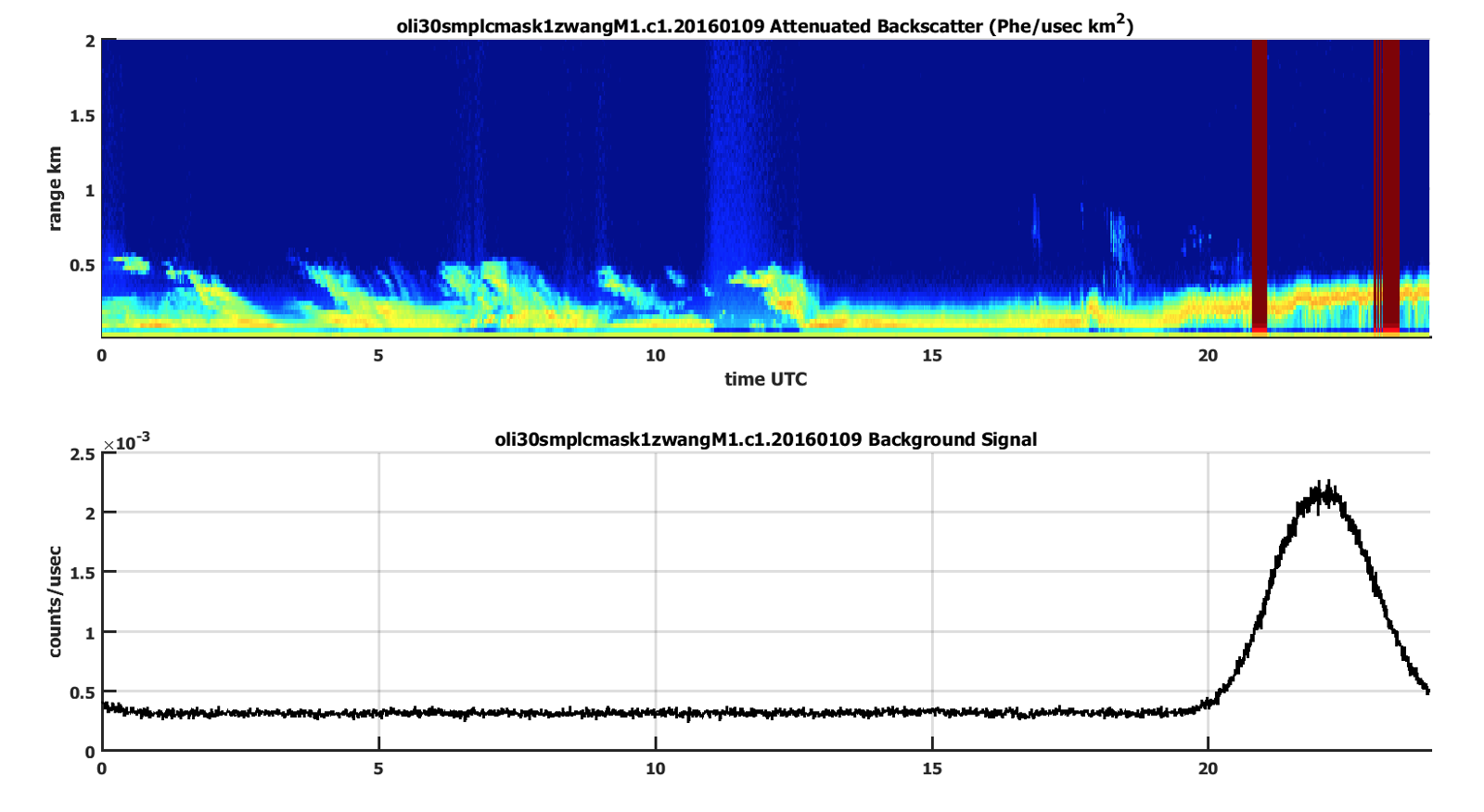Micropulse Lidar Cloud Mask VAP Data Revised for High-Latitude Sites
Published: 28 June 2021
Data reprocessed with a revised version of the Micropulse Lidar Cloud Mask value-added product (MPLCMASK VAP) are now available for four high-latitude sites. This reprocessing also includes periods of data previously listed as missing.
The durations of missing data varied from several minutes to several hours and occurred periodically during the winter months. Affected fields included lidar backscatter, linear depolarization ratio, and cloud mask.
For MPL operation in tropical latitudes, covering the telescope near solar noon is necessary to protect the system from damage and fire risk. The lidar beam is effectively blocked, and the use of these data is limited. MPLCMASK includes a screening process that detects and flags this condition by inspecting the lidar background signals measured by the MPL. The detection works well for tropical sites, but for high-latitude sites, the screening process can erroneously detect “blocked-beam” conditions during the winter and set these data to missing.
The MPLCMASK VAP algorithm has been updated to only apply the blocked-beam screening to data collected at tropical latitudes.
All affected MPL data have been reprocessed for the following sites and time periods:
- McMurdo Station, Antarctica, during the ARM West Antarctic Radiation Experiment (AWARE) from December 1, 2015, to January 3, 2017
- the AWARE West Antarctic Ice Sheet site from December 6, 2015, to January 18, 2016
- Oliktok Point, Alaska, from September 12, 2013, to November 14, 2020
- the North Slope of Alaska central facility at Utqiaġvik (formerly Barrow) from October 7, 2010, to November 14, 2020.

Scientists can replace previously downloaded versions of the data with the revised version now available in the ARM Data Center.
For more information about MPLCMASK, go to the VAP web page.
For questions, contact translator Damao Zhang, assistant translator Donna Flynn, developer Chitra Sivaraman, or MPL instrument mentor Paytsar Muradyan.
Access the data set in the ARM Data Center. (Go here to create an account to download the data.)
To cite the MPLCMASK data, please use doi:10.5439/1508389.
Keep up with the Atmospheric Observer
Updates on ARM news, events, and opportunities delivered to your inbox
ARM User Profile
ARM welcomes users from all institutions and nations. A free ARM user account is needed to access ARM data.


















